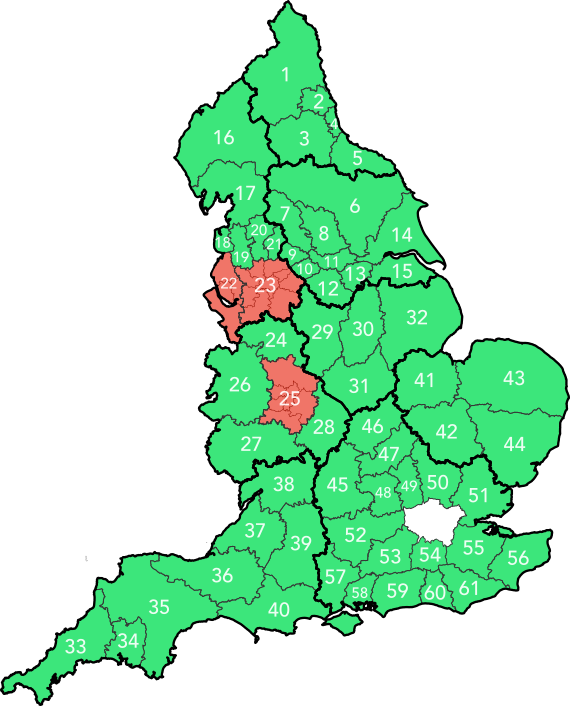Yes, I meant English, not British.
In 1998-9, parliaments were established in Northern Ireland, Scotland, and Wales, and over time increasing amounts of local power and authority have devolved to those national governments.
England, however, remains parliament-less, and attempts to establish any sort of devolved English government run into the problem that England is a strong majority of the UK in terms of population, and even moreso in terms of money. This means that any decisions made for England would have a very strong effect on the rest of the UK.
The solution would presumably be to cut England up into little chunks. Scotland's population is about 5.5 million, Wales a bit over 3 million and NI a bit under 2 million; England is 56 million. So we'd probably want to cut England up into 10+ chunks to have them be on a similar order of size.
Something like this has been happening in recent years with the establishment of Combined Authorities, but those are very recent and far from covering the whole country.
What would it take to get a more federal England? PoDs before 1900 are also fine.
In 1998-9, parliaments were established in Northern Ireland, Scotland, and Wales, and over time increasing amounts of local power and authority have devolved to those national governments.
England, however, remains parliament-less, and attempts to establish any sort of devolved English government run into the problem that England is a strong majority of the UK in terms of population, and even moreso in terms of money. This means that any decisions made for England would have a very strong effect on the rest of the UK.
The solution would presumably be to cut England up into little chunks. Scotland's population is about 5.5 million, Wales a bit over 3 million and NI a bit under 2 million; England is 56 million. So we'd probably want to cut England up into 10+ chunks to have them be on a similar order of size.
Something like this has been happening in recent years with the establishment of Combined Authorities, but those are very recent and far from covering the whole country.
What would it take to get a more federal England? PoDs before 1900 are also fine.


